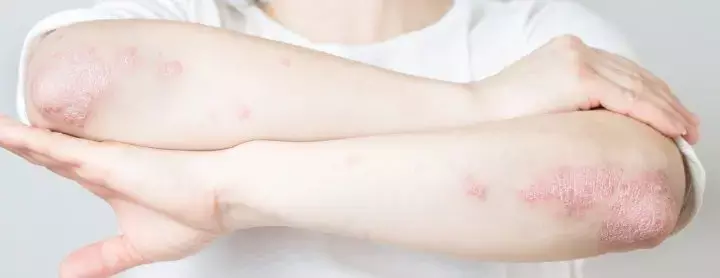- Home
- Medical news & Guidelines
- Anesthesiology
- Cardiology and CTVS
- Critical Care
- Dentistry
- Dermatology
- Diabetes and Endocrinology
- ENT
- Gastroenterology
- Medicine
- Nephrology
- Neurology
- Obstretics-Gynaecology
- Oncology
- Ophthalmology
- Orthopaedics
- Pediatrics-Neonatology
- Psychiatry
- Pulmonology
- Radiology
- Surgery
- Urology
- Laboratory Medicine
- Diet
- Nursing
- Paramedical
- Physiotherapy
- Health news
- Fact Check
- Bone Health Fact Check
- Brain Health Fact Check
- Cancer Related Fact Check
- Child Care Fact Check
- Dental and oral health fact check
- Diabetes and metabolic health fact check
- Diet and Nutrition Fact Check
- Eye and ENT Care Fact Check
- Fitness fact check
- Gut health fact check
- Heart health fact check
- Kidney health fact check
- Medical education fact check
- Men's health fact check
- Respiratory fact check
- Skin and hair care fact check
- Vaccine and Immunization fact check
- Women's health fact check
- AYUSH
- State News
- Andaman and Nicobar Islands
- Andhra Pradesh
- Arunachal Pradesh
- Assam
- Bihar
- Chandigarh
- Chattisgarh
- Dadra and Nagar Haveli
- Daman and Diu
- Delhi
- Goa
- Gujarat
- Haryana
- Himachal Pradesh
- Jammu & Kashmir
- Jharkhand
- Karnataka
- Kerala
- Ladakh
- Lakshadweep
- Madhya Pradesh
- Maharashtra
- Manipur
- Meghalaya
- Mizoram
- Nagaland
- Odisha
- Puducherry
- Punjab
- Rajasthan
- Sikkim
- Tamil Nadu
- Telangana
- Tripura
- Uttar Pradesh
- Uttrakhand
- West Bengal
- Medical Education
- Industry
Tofacitinib may Improve Itching and Other Symptoms Among Psoriasis Patients with PsA: Study

Tofacitinib may Improve Itching and Other Symptoms Among Psoriasis Patients with PsA suggests a new study published in the Journal of the European Academy of Dermatology and Venereology.
Tofacitinib may lead to patients with psoriasis and history of psoriatic arthritis (PsA) to see improvement by Week 16 in disease, joint pain, pruritus, morning stiffness, and depressive symptoms, according to new findings, with doses being 5 and 10 mg twice per-day. The investigators explored the use of the oral Janus kinase (JAK) inhibitor in a pooled analysis of data drawn from two phase 3 studies, OPT Pivotal 1 and 2. These studies spanned 52 weeks and were carried out globally. The research team used a post-hoc analysis of this data to assess the patient-reported outcomes (PROs), efficacy, and safety profile of tofacitinib in those with moderate-to-severe psoriasis and a history of psoriatic arthritis. The team randomized subjects in their research to be given tofacitinib 5 or 10 mg twice-per-day or a placebo, having the placebo-treated subjects switching to the drug at the 16-week mark. They looked into the effects of joint pain, itch, and morning stiffness on helping to mitigate symptoms of depression. By 16 weeks, those in the 5 and 10 mg BID treatment arms were shown by the team to have major improvements in Itch Severity Item (ISI) scores, rates of response in their Psoriasis Area and Severity Index (PASI)75/PASI90 scores, and diminished joint pain as opposed to subjects in the placebo arm.
The investigators also noted that there was a large portion of participants in the treatment arm who ended up achieving a Hospital Anxiety and Depression Scale Depression (HADS-D) subscale score <8 by the 16-week mark, suggesting there were reductions in their depressive symptoms. Overall, the investigators concluded that the pooled OPT Pivotal 1 and 2 trial data indicated improvements in itch, skin condition, morning stiffness, pain in joints, and mental health compared to those given a placebo by Week 16 and that these were sustained through to 52 weeks.
Reference:
Bachelez, H., Griffiths, C.E.M., Papp, K.A., Hall, S., Merola, J.F., Feldman, S.R., Khraishi, M., Tan, H., Fallon, L., Cappelleri, J.C., Bushmakin, A.G. and Young, P. (2024), Tofacitinib efficacy, patient-reported outcomes and safety in patients with psoriasis and a medical history of psoriatic arthritis: Pooled analysis of two Phase III studies. J Eur Acad Dermatol Venereol. https://doi.org/10.1111/jdv.19701.
Dr. Shravani Dali has completed her BDS from Pravara institute of medical sciences, loni. Following which she extensively worked in the healthcare sector for 2+ years. She has been actively involved in writing blogs in field of health and wellness. Currently she is pursuing her Masters of public health-health administration from Tata institute of social sciences. She can be contacted at editorial@medicaldialogues.in.
Dr Kamal Kant Kohli-MBBS, DTCD- a chest specialist with more than 30 years of practice and a flair for writing clinical articles, Dr Kamal Kant Kohli joined Medical Dialogues as a Chief Editor of Medical News. Besides writing articles, as an editor, he proofreads and verifies all the medical content published on Medical Dialogues including those coming from journals, studies,medical conferences,guidelines etc. Email: drkohli@medicaldialogues.in. Contact no. 011-43720751


